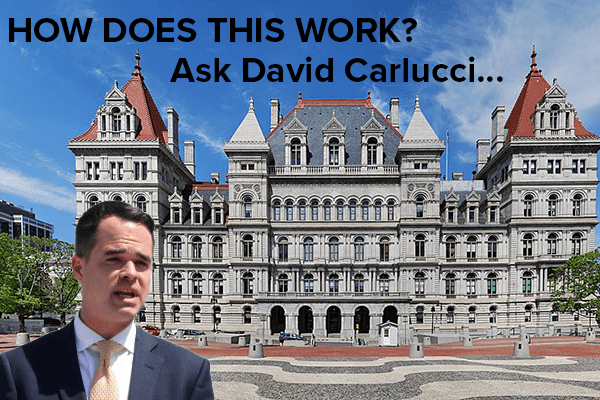|
RCBJ-Audible (Listen For Free)
|
Statewide Registry Law Preserves Local Municipal Bans On Short-Term Rentals
By David Carlucci
 Travel trends are vastly different today from ten or even five years ago. Instead of hotels, many travelers opt to spend their time away in residential units rented out by their owners. Airbnb, a household name in this trend, offers over thirty thousand listings on any given day in New York City alone, with more than half providing renters an entire home or apartment.
Travel trends are vastly different today from ten or even five years ago. Instead of hotels, many travelers opt to spend their time away in residential units rented out by their owners. Airbnb, a household name in this trend, offers over thirty thousand listings on any given day in New York City alone, with more than half providing renters an entire home or apartment.
Despite providing unprecedented access and accommodations to New York State, short-term rental services stir some fear among building owners, visitors, and New York residents. Out of all the questions surrounding short-term rentals, one of the most prominent is how many properties are used for these services. Not having record of the number of properties rented out for less than a month has worried some New Yorkers about the cost and availability of New York State’s housing supply. To understand what properties in the New York housing market are used and how they are used, Senator Hinchey and Assemblymember Fahy introduced bills S885C and A4130C, a bill to create a short-term rental registry, in their respective legislative chambers.
S885C/A4130C will introduce several requirements for short-term residential rental hosts to do business within New York State if signed. First, the bill requires rental hosts to register their offerings, listings, and advertisements with the Department of State every two years. Every month, rental hosts must report the availability and activity of their rental properties. This includes a registration number, information regarding each listing’s location, whether a listing is for a partial or whole unit, and the number of nights each unit was occupied throughout the month. The Department of State then reports this information to each municipality so that they have a clearer picture of the local short-term rental market and its relationship with the local housing market.
Another component of the bill requires rental hosts to collect property sales and occupancy taxes. Renters, the visitors of the short-term rental properties, would bear this cost, not the property owners themselves. According to Hinchey and Fahy, this “bed tax provision” will be reinvested into the New York State tourism industry, keeping hotels and other businesses afloat. However, some argue that these taxes will make traveling in New York less affordable for some visitors.
The bill only covers listings available for less than thirty days and for tourist or transient use. This means there are exceptions for healthcare and through permission by state departments. Similarly, this bill does not cover occupancy of homes from others when the homeowner is absent unless there is monetary compensation for occupancy.
Several local governments have already constructed their short-term rental registries. For example, New York City adopted Local Law 18 in January 2022, creating the City’s short-term rental registration portal. S885C/A4130C will not conflict with the City’s registry if signed. Instead, the NYC registry will be grandfathered in, meaning property owners only have to register once.
Locally, the Town of Clarkstown and the Town of Stony Point have outright banned short-term rentals. Short of a ban, the Village of Haverstraw and the Village of Suffern have set up their own registration and permitting systems that still allow short-term rentals under a series of rigid rules. The statewide law, as written, would continue to permit local bans on short-term rentals, and specifically preserves local laws banning short-term rentals.












